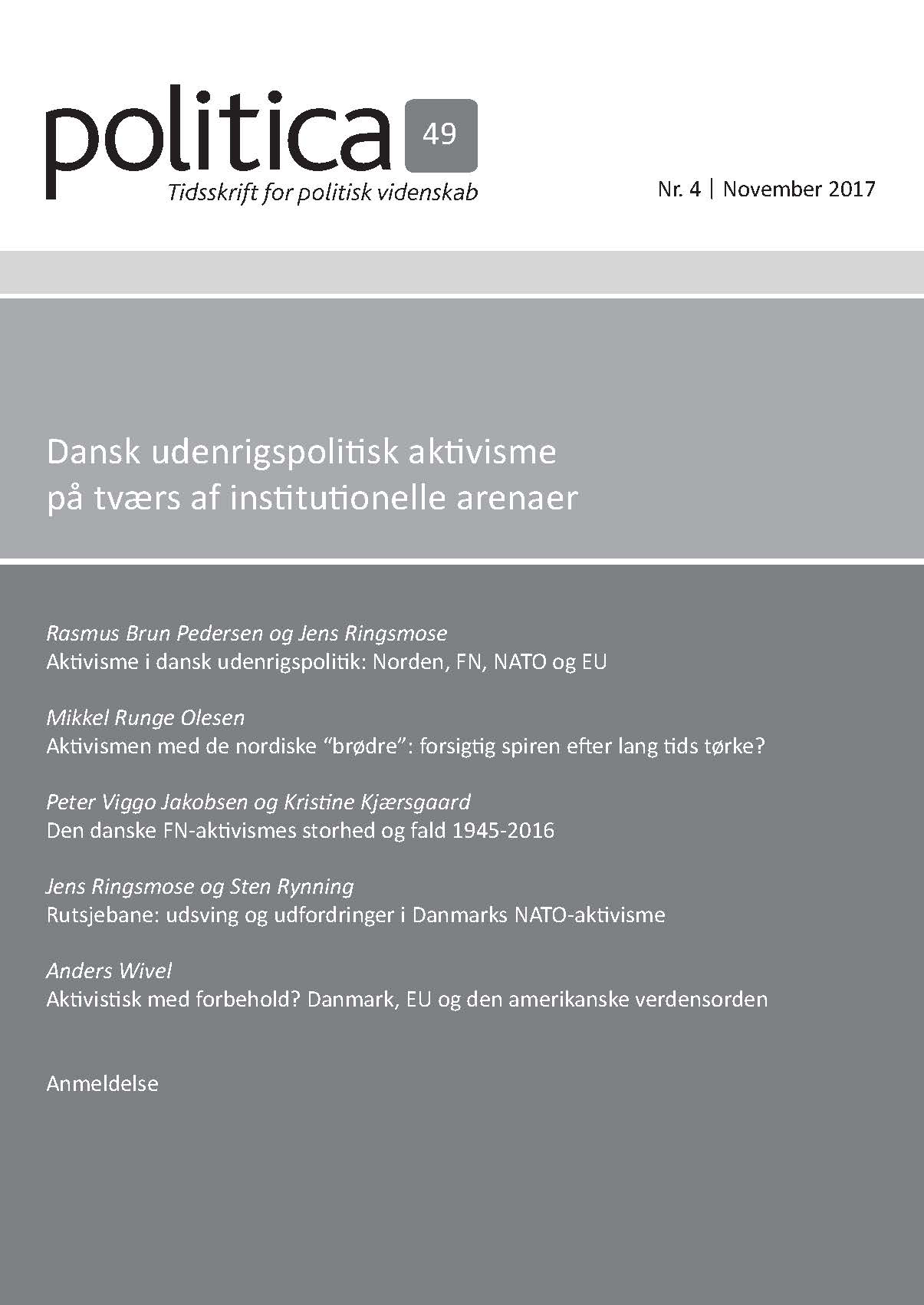The rise and fall of Danish UN activism, 1945-2016
DOI:
https://doi.org/10.7146/politica.v49i4.131234Resumé
The United Nations (UN) was at the heart of Denmark’s activist foreign policy from the late 1950s to the mid-1990s. Since then the UN has been marginalized. Dansk foreign policy activism is now conducted under the auspices of the European Union (EU), the North Atlantic Treaty Organization (NATO) and US-led coalitions. The huge shifts in Danish UN activism in the 1945-2016 period are analyzed in the diplomatic, economic and military domains using four indicators: voluntarism, initiative, risk tolerance and use of resources. The rise and fall of Danish UN activism resulted from the interaction between a changing international environment (threats, norms, international demand and cooperation opportunities) and government efforts to promote Danish interests and values/altruism. The UN lost its key role in Danish foreign policy because the organization proved ill-suited for promoting western and Danish interests and values after the Cold War. Danish decision makers consequently prioritized the EU and NATO instead.
Publiceret
Citation/Eksport
Nummer
Sektion
Licens
LicensOphavsretten tilhører Politica. Materialet må ikke bruges eller distribueres i kommercielt øjemed.





